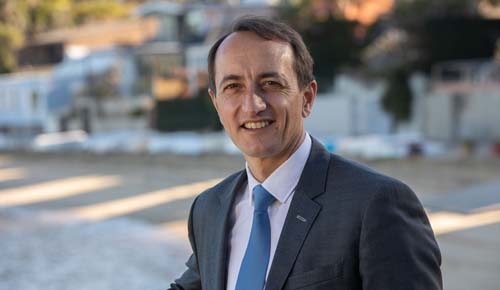
Some Western countries want to utilize UN system as a tool against Russia
Mu Lu
“Russia should lose its permanent seat on the UN Security Council,” Dave Sharma, a member of Australia’s House of Representatives who chairs the Joint Standing Committee on Treaties, recently said in an article in Nikkei Asia, saying “Moscow has voided its moral claim to such a privilege.” Previously, British Prime Minister Boris Johnson’s spokesman said the UK government is open to removing Russia as one of the five permanent members of the UN Security Council (UNSC) following the Ukraine crisis.
Since Russia launched military operation in Ukraine, the West has been hyping the legitimacy of Russia’s permanent seat at the UNSC, making the UN system another battlefield to suppress Russia. Chinese scholars believe such hype is nothing but hysteria with more propaganda significance and more sensationalism over actual effect. It is intended to put Russia in a more passive position by taking advantage of the Russia-Ukraine issue.
This is part of the West’s campaign against Russia, said Zhang Tengjun, deputy director of the Department for Asia-Pacific Studies at the China Institute of International Studies. “The reason the West believes the UN has failed to play a satisfactory role since the Russia-Ukraine conflict is that Russia, as a UNSC permanent member, has veto power. By means such as expelling Russia from the UNSC, the West hopes to further forge a united front against Moscow,” Zhang told the Global Times.
According to Yang Xiyu, a senior research fellow at the China Institute of International Studies, the US-led West has been aiming to reform the UN based on its own interests. Hyping the Permanent Five (P5) topic, the West is attempting to reap from the ongoing Russia-Ukraine conflict to create a more unfavorable environment for Russia.
Nevertheless, in the current structure of the UN, it is impossible to remove Russia from the P5. “By raising the issue, the West is challenging UN rules. To expel a permanent member would require the agreement of all the five permanent members, which is clearly not realistic. Whatever the purpose of this motion, the crux is to attack the rules directly, calling for the revision of the UN Charter. This is inconsistent with the US and the West’s claims about the so-called rules-based international order,” Yang noted.
“Why hasn’t the US been kicked off UN Human Rights Council (UNHRC)?” Dave Lindorff, a Philadelphia-based journalist and columnist, asked after the April 7 vote of the UN General Assembly (UNGA) to suspend Russia’s membership in the UNHRC.
Lindorff wrote in Eurasia Review that “the US and NATO member state governments have been pushing the claim that Russia is committing war crimes in Ukraine including the major war crime of invading another country, the unasked question in the US media is: Why hasn’t the US been kicked out of the Human Rights Council for similar war crimes that aren’t at all allegations, but are well-documented facts? Why indeed, for all the accusations that Russian President Vladimir Putin is himself a war criminal responsible for all these crimes, haven’t a number of US presidents still living been accused of war crimes?”
This is it. In contrast to the UN agenda initiated by the West against Russia, many controversial actions of the West were not investigated well enough. For example, Russia disclosed a large number of US-funded secret bio-labs in Ukraine, which pose risks of leakage of some dangerous pathogens. But the UN hasn’t taken effective action. This reflects the influence of the US-led West within the world organization – and this has made it hard for some motions involving the West to proceed.
After the UNGA’s votes on April 7, a Twitter user commented, “It would be interesting to see how many votes were won by putting pressure on many sovereign countries.”
The US-led West is clearly using the UN as a strategic tool, rather than regarding it as an entity with legitimacy beyond governments, Zhang said, noting, “When the international mechanism affects their foreign policy, the US-led West will choose to serve themselves better by making a fuss of the systems.”
According to the votes, countries representing 23.5 percent of the world’s population voted in favor of suspending Russia’s seat on the UNHRC, while countries that have 27.2 percent of the world’s population voted against it. In the meantime, some countries that feed 45.1 percent of the population abstained. Of the world’s 10 most populous countries, only the US voted in favor.
Zhang said that international activities related to the UN mechanism are fundamentally about how to reform the global governance system to be more just and equitable. International affairs should be handled fairly and rationally, not according to the number of countries involved or how powerful they are.
The writer is a reporter with the Global Times
